2021 has not been a particularly good year for space-themed video games. Aside from Everspace 2, which launched in Early Access back in January, we haven’t seen a whole lot of other games trying to tackle the final frontier in an interesting way this year. Luckily, we’re not ending 2021 on a sour note because there’s still one game that can quench our thirst for space exploration, and its name is Chorus.
Developed by Deep Silver Fishlabs, Chorus can best be described as a third-person space combat simulator, though that description alone would not do it justice. While the game does put quite a lot of emphasis on combat, it also spends a great deal of time setting up a dark universe filled with mystery, warring factions, and supernatural forces.
At the center of it all is Nara, a skilled pilot whose combat prowess is legendary all throughout the galaxy. Together with her trusty ship Forsaken, Nara travels the galaxy on a quest to atone for her past mistakes while trying to stop powerful entities from imposing their will upon humanity and bringing about ‘The Chorus’.
The Chorus is a bit of an abstract concept but essentially involves bringing harmony to the galaxy. While some factions believe this goal can be achieved through peace and unity, others want to enforce it through war and conquest.
A Hero’s Journey
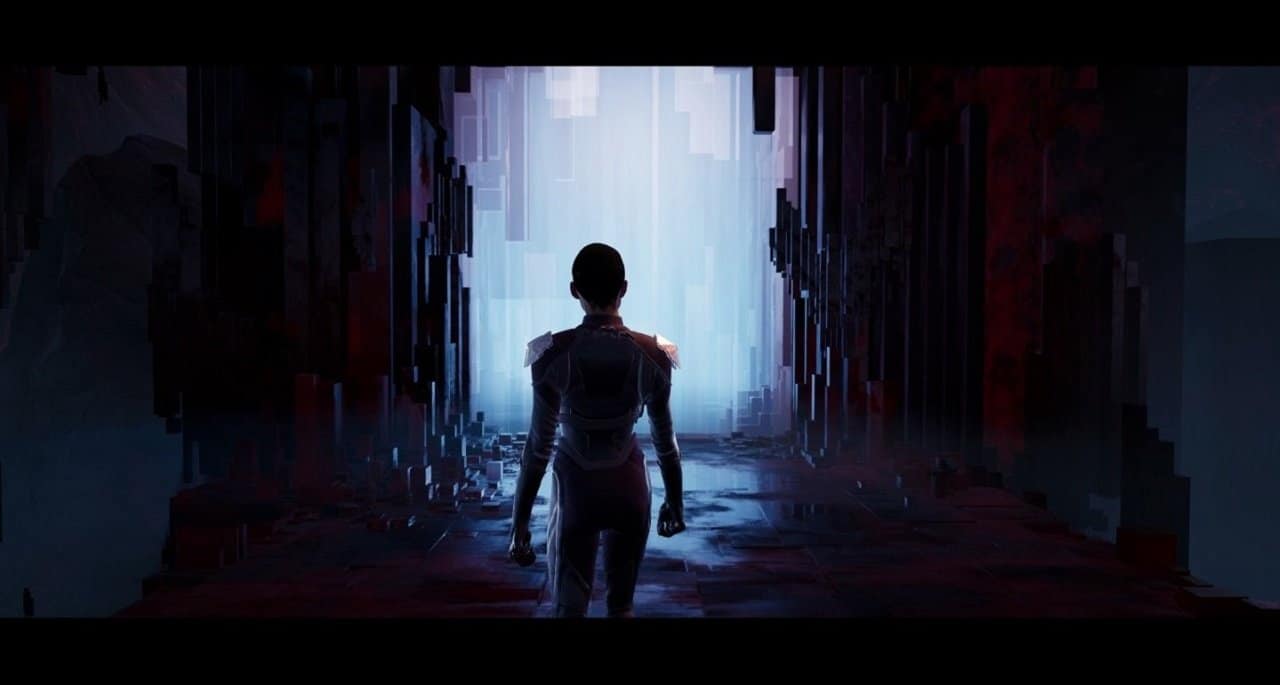
Chorus’ narrative plays out like a fairly traditional hero’s journey revolving around protagonist Nara. We learn from the opening cinematic that Nara used to be part of a religious group known as The Circle where she held the rank of Elder. Nara was forced to commit unspeakable atrocities while she was part of the cult and is now trying to redeem herself by hunting down its leader and her former master, the Great Prophet.
Chorus introduces us to many of its central characters and factions during the opening hours but doesn’t do the best job at fleshing them out. Most of the game’s characters are one-dimensional and only serve to guide Nara to her next objective. Try as I might, I just couldn’t get invested in their stories or even remember which factions they belonged to half of the time.
It doesn’t help that the writing for a lot of the supporting cast is inconsistent. The same goes for the voice acting, with some performances being much better than others. However, the thing that drags side characters down the most is that they simply don’t feel important in the great scheme of things. This is Nara’s story and she only shares the spotlight with one other character – Forsaken. Or ‘Forsa’ as the protagonist usually refers to it.
Two Protagonists for the Price of One
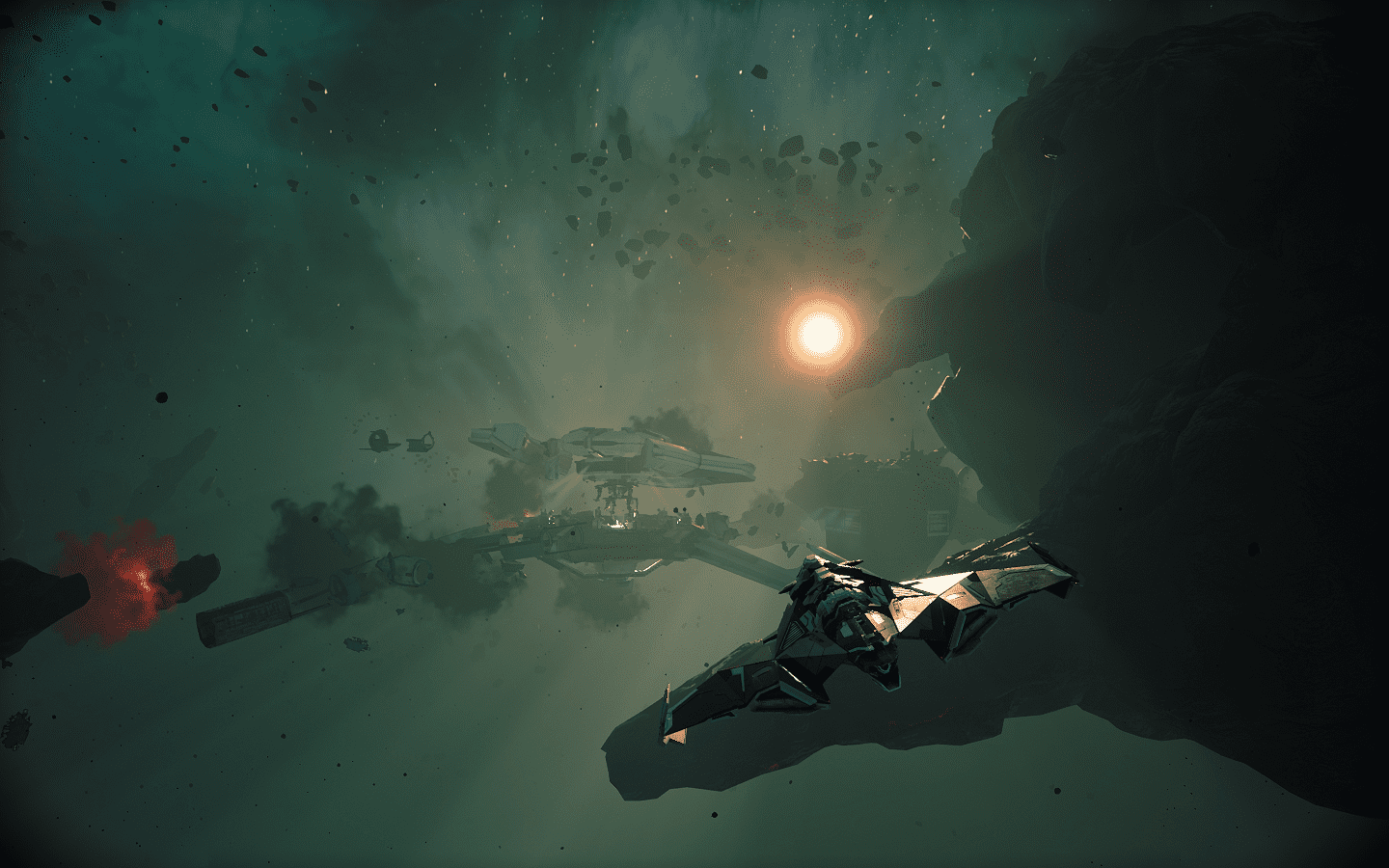
Forsaken is an advanced sentient ship that Nara bonded with during her time with The Circle. Although Nara pilots a different ship at the start of the game, it doesn’t take long for her to become reunited with her old friend and partner. Once reunited, the two become inseparable throughout most of the game.
The bond between Nara and Forsa is one of the highlights of Chorus. The two share a special symbiotic relationship that allows them to essentially act and fight as one being. But it goes even deeper than that. Throughout the game we see their relationship evolve from an uneasy alliance born out of mutual necessity to a true partnership where both Nara and Forsa see each other as equals. To the point where the game starts having two protagonists instead of one.
The only drawback that comes from exploring this complex relationship is that you’ll be spending the vast majority of your time in Chorus piloting the same ship. I wasn’t a big fan of this until I stopped wanting to see Chorus as a traditional space sim.
Chorus isn’t one of those games where you start off as a nobody and have to make a name for yourself in the galaxy while gradually unlocking better and better ships. Nara is an already well-established – and quite important – character in this universe. And so is her ship. Hence why replacing the ship wouldn’t make much sense in the context of the game. Although you do get to try out a couple of different ones at various points.
Don’t Expect Rpg Levels of Progression
But even though you’re stuck with the same ship for most of the game, that doesn’t mean there’s no sense of progression. There are a number of weapons and modifications you can attach to your ship to make it perform better. There’s nothing to write home about when it comes to these upgrades as most of them are fairly generic, but you do sometimes come across items that feel a bit more special.
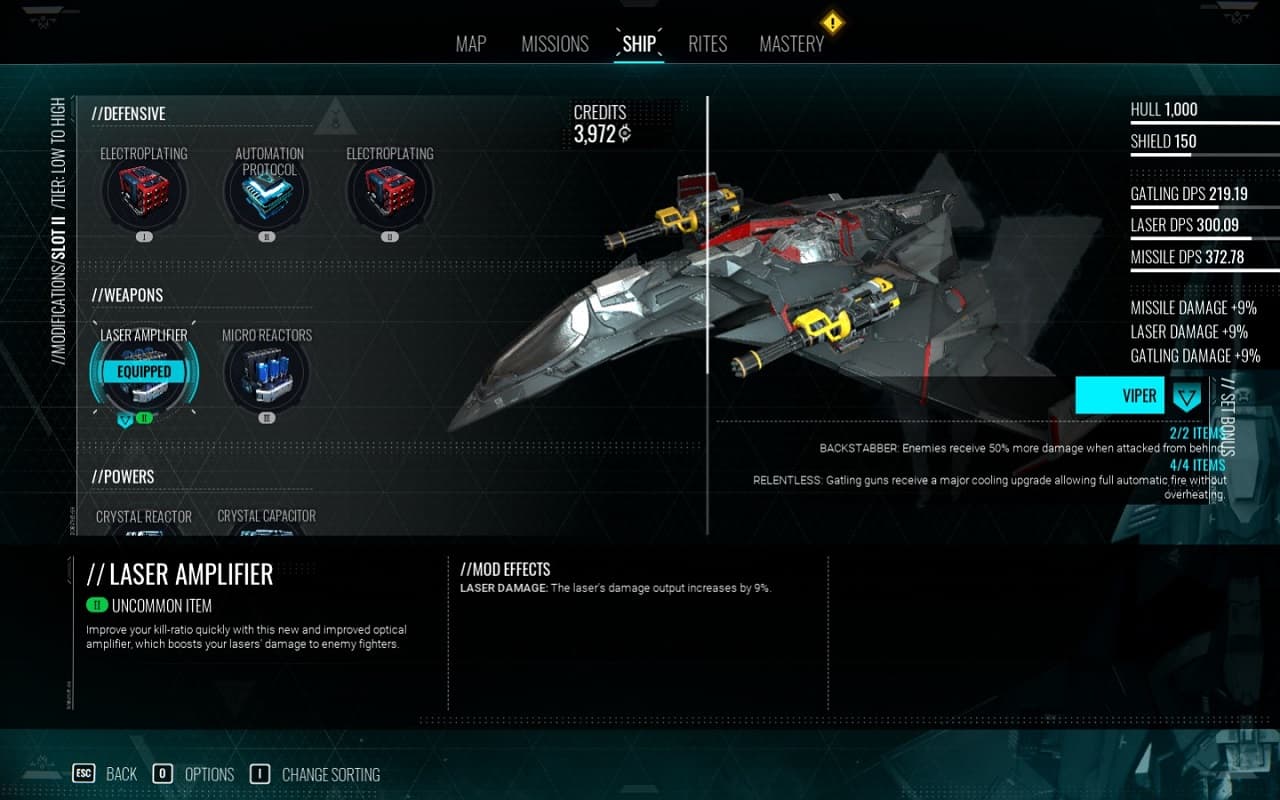
The most interesting thing about these upgrades, which are usually given as quest rewards, is that they can sometimes be combined to grant set bonuses. Many of these bonuses improve certain weapons and/or abilities, which would have been great if the game was designed to support different playstyles. Unfortunately, it wasn’t.
Instead, Chorus encourages you to be adaptable and play as a jack-of-all-trades. This makes the set bonuses less useful than they could have been.
The game has just enough item variety where you can technically play around with a specific build. However, doing so wouldn’t be very efficient because there’s an equal amount of enemy variety and a lot of situations require you to switch between weapons and powers on the fly.
Teleportation, Mind Control, and More
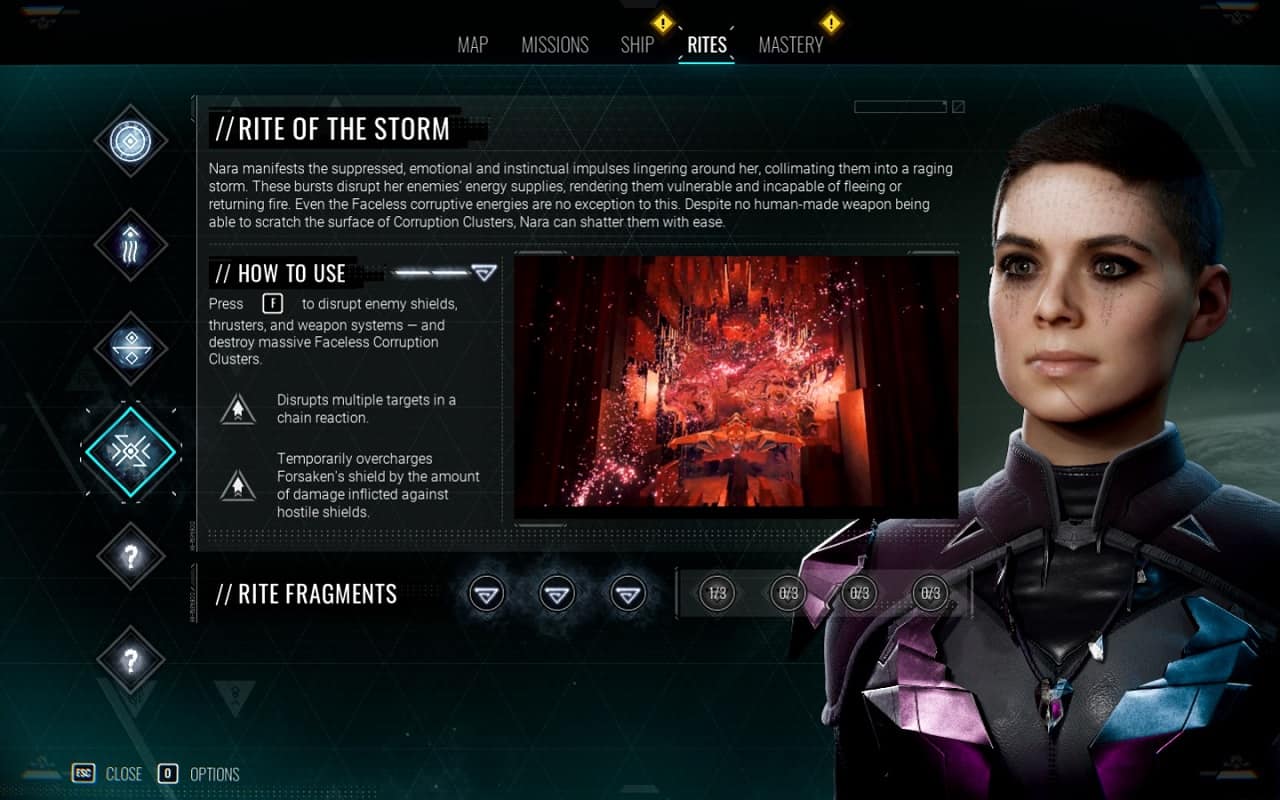
Speaking of powers, you only get access to a small handful of them but they are all very useful. Nara’s first power, Rite of the Senses, unlocks early on and comes in handy both in and out of combat. With this ability, Nara can sense anything from credit caches and quest objectives to enemy weak spots and more.
Rite of the Senses can also be used to more easily locate memories, visions of past events that primarily serve to flesh out the lore of the game, though they do have additional purposes on occasion.
Other powers are more tailored for combat. Like Rite of the Hunt, a short-range teleport that lets Nara leap behind enemy ships, or Rite of the Storm, a ranged electrical attack that can disrupt shields and incapacitate vessels. Most of Nara’s powers can be upgraded throughout the game, a fact that took me longer than I’d like to admit to discover.
Chorus could do a slightly better job at informing you what’s going on, particularly when it comes to the memories. One minute you’re witnessing a conversation between two characters you’ve never met, the next minute one of your Rites is getting a new Aspect (aka upgrade). It’s all a little bit confusing.
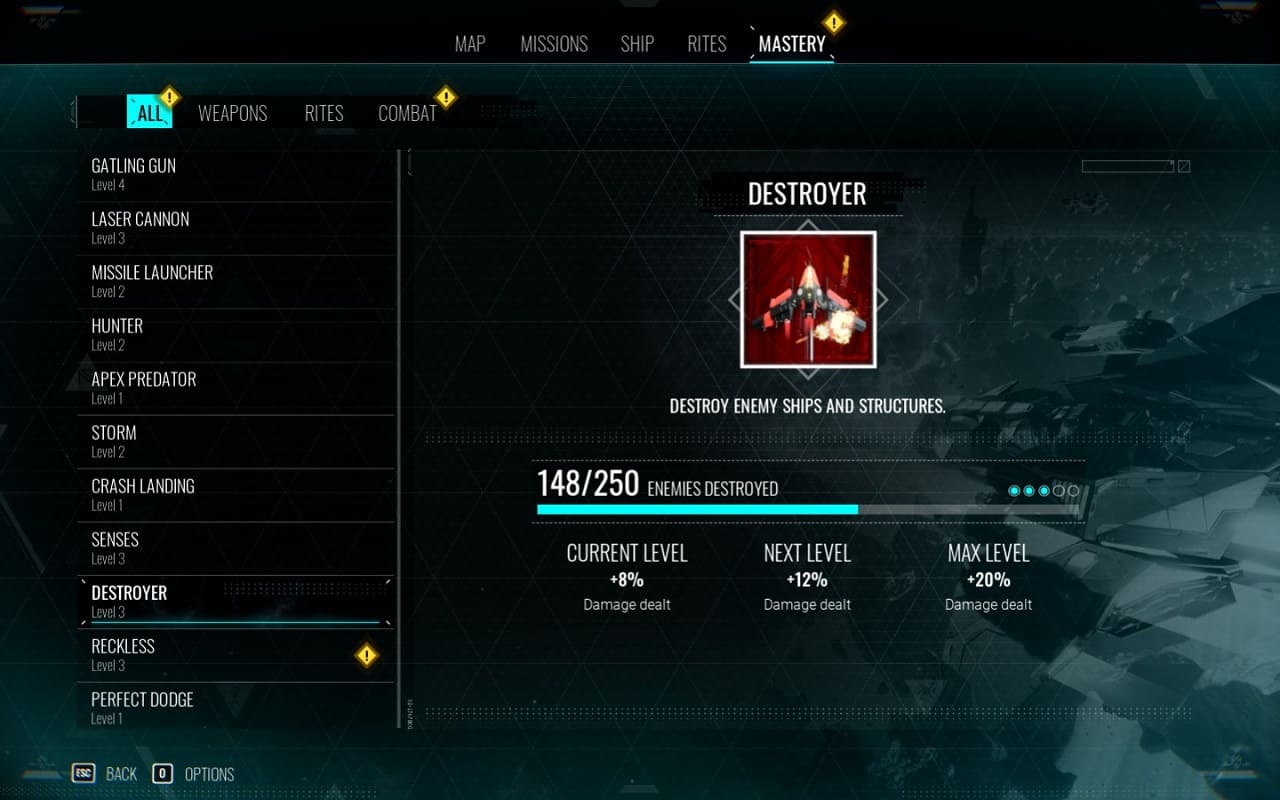
In addition to actively upgrading your weapons and armor, Nara and Forsa also benefit from passive upgrades thanks to the Mastery system. Similar to an Elder Scrolls game, your Rites and guns get progressively better the more you use them.
Things are a lot more simplistic here, though, as there are no skill points or additional effects to unlock. I feel like Fishlabs could have made Masteries a bit more interesting but the system does get the job done even in its current state.
Space Combat Simulator Indeed
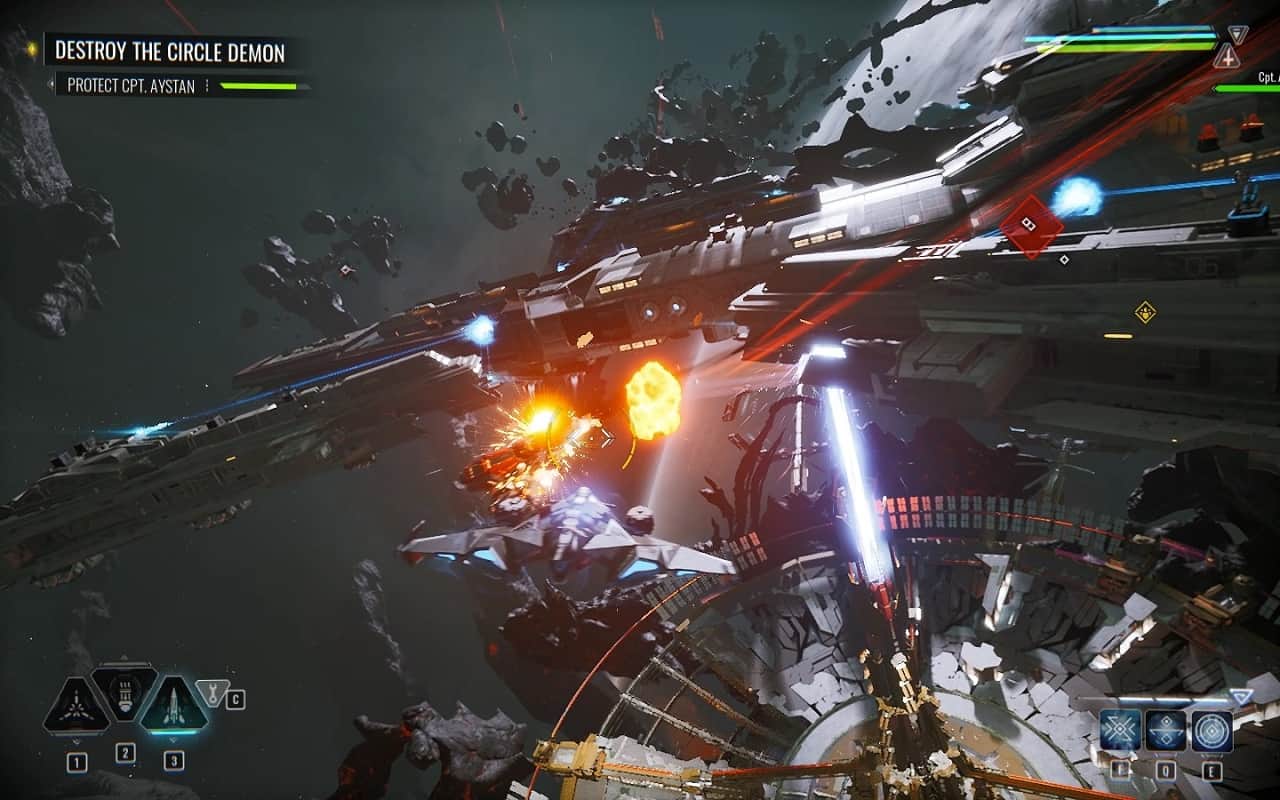
All that aside, it’s finally time to talk about the game’s main selling point – the combat. If you enjoy action-packed dogfights in space, you definitely won’t be disappointed by what Chorus has to offer.
To give you some idea of what to expect, imagine taking the combat system of an old space sim like Freelancer and turning it up to 11. Then, add supernatural powers and occasional boss battles into the mix. Finally, wrap it all up in some incredible battle music and you’ve got yourself some of the best video game action sequences we’ve seen in 2021.
I found Chorus’ combat system to be extremely enjoyable for two very important reasons. First off, the combat is quite challenging and constantly keeps you on your toes. There’s little room for error while in a fight as you are always outnumbered and the enemy AI is very good at outflanking you.
Moreover, half of the time you’re fighting inside asteroid fields or around space stations where you’ll need to keep a close eye on your environment. Bumping into objects at high speed hurts a lot and they can be difficult to avoid due to how the combat arenas are designed. You’d be surprised at how many times you’ll find yourself fighting in tight corners in this game.
Luckily, and this is the second reason why I love the combat, you’re piloting a ship that’s better than what pretty much everybody else is flying. This gives you a number of distinct advantages during combat.
If you’re staying on top of your upgrades, Forsa can easily outmaneuver and outgun most enemy ships you’ll encounter. Not just that but you also have additional layers of mobility and firepower at your disposal thanks to your Rites.
Boss Fights Are an Entirely Different Matter, Though
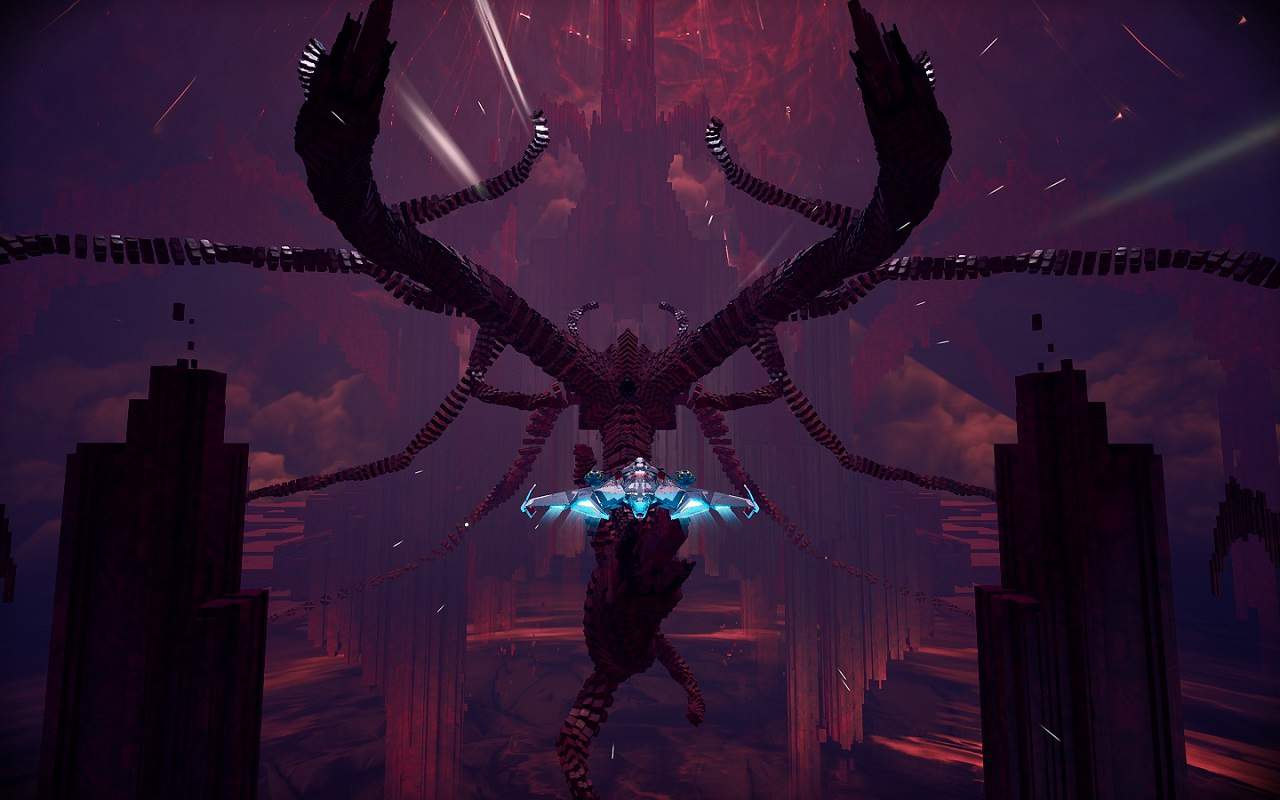
Despite that, however, you’ll probably still run into some trouble during special encounters. The game occasionally pits you up against small ships that are just as capable as Forsaken, as well as capital ships that can’t be destroyed through conventional means regardless of how much heat you’re packing.
To destroy large ships, you’ll need to gradually dismantle them by taking out their engines and thrusters before attacking their main power source. This can be quite challenging, though, as capital ships are defended by turrets and swarms of small fighters.
Destroying a massive ship in Chorus feels extremely satisfying. It kinda reminded me of that scene from Star Wars: A New Hope where Luke Skywalker destroys the Death Star. Only here you’re doing it in a way that actually makes sense.
I don’t have any real gripes with Chorus’ combat but I did feel like some of the dogfights were a little too drawn-out, especially during side quests. Enemy ships often come at you in small waves of anywhere between four and seven vessels. After a while, it starts to feel like an Assassin’s Creed game where enemies attack you one at a time. Luckily, situations like that are far and few between during main missions.
Explore Everything at Your Leisure, Mostly
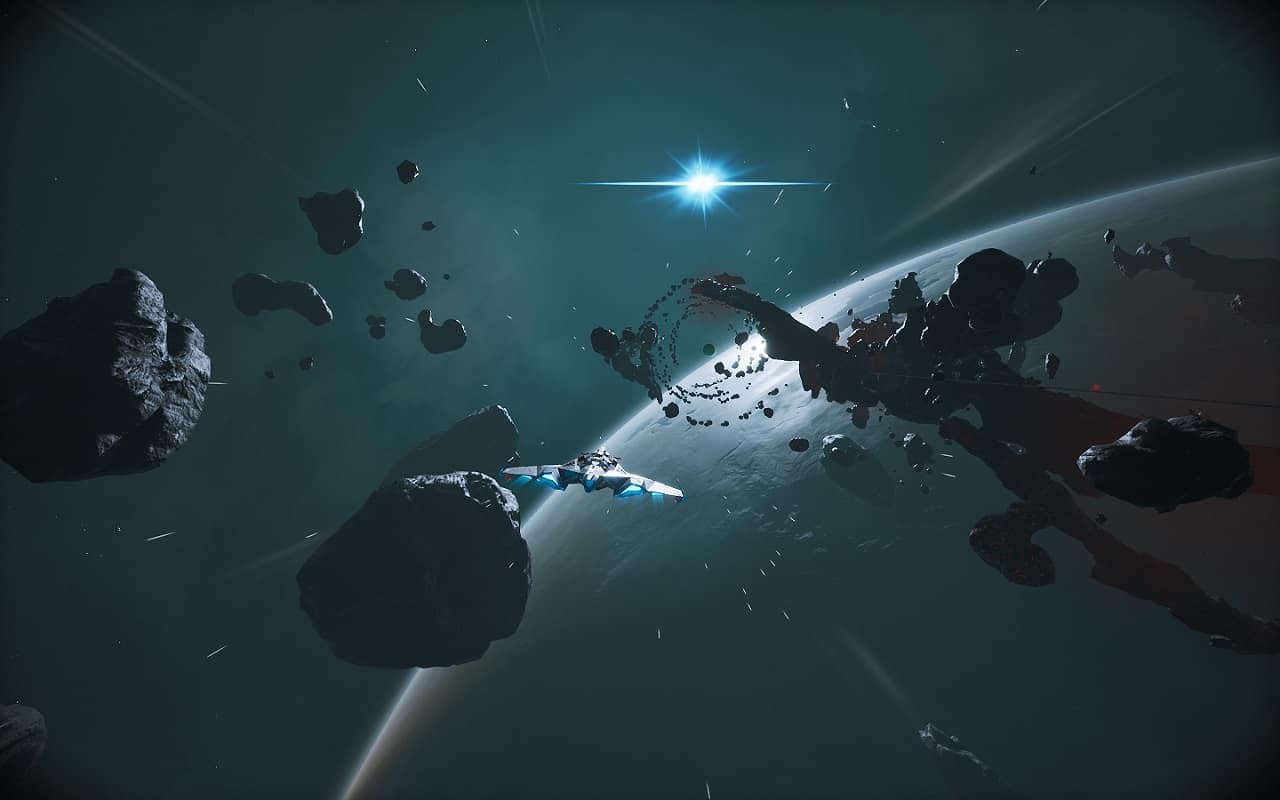
Chorus isn’t nearly as expansive as some of the other space sims out there with but it still offers a good variety of environments to explore. The game features a semi-open-world structure where you can explore each star system at your leisure as soon as you’ve unlocked it. Think of The Witcher 3 but set in space. And with far fewer side missions and points of interest, though there is a decent amount of those as well.
Chorus’ star systems aren’t very impressive in terms of scale but they are jam-packed with a lot of celestial bodies, cosmic anomalies, and man-made structures. There’s quite a bit of interesting stuff to explore here and you can use hyperspeed lanes or your ship’s warp drive to quickly move around whenever you want to do some sightseeing. You may end up being interrupted more often than you’d like, though.
The game has a tendency to throw random encounters at you when you least expect it. Occasionally being ambushed by ships isn’t a big deal because you can quickly dispatch them but some of the side missions can be a bit annoying. Especially when the game generates encounters in areas you’ve already visited or tries to repeatedly initiate a mission that you’re not eligible to accept just yet.
A Small but Beautiful Corner of the Galaxy
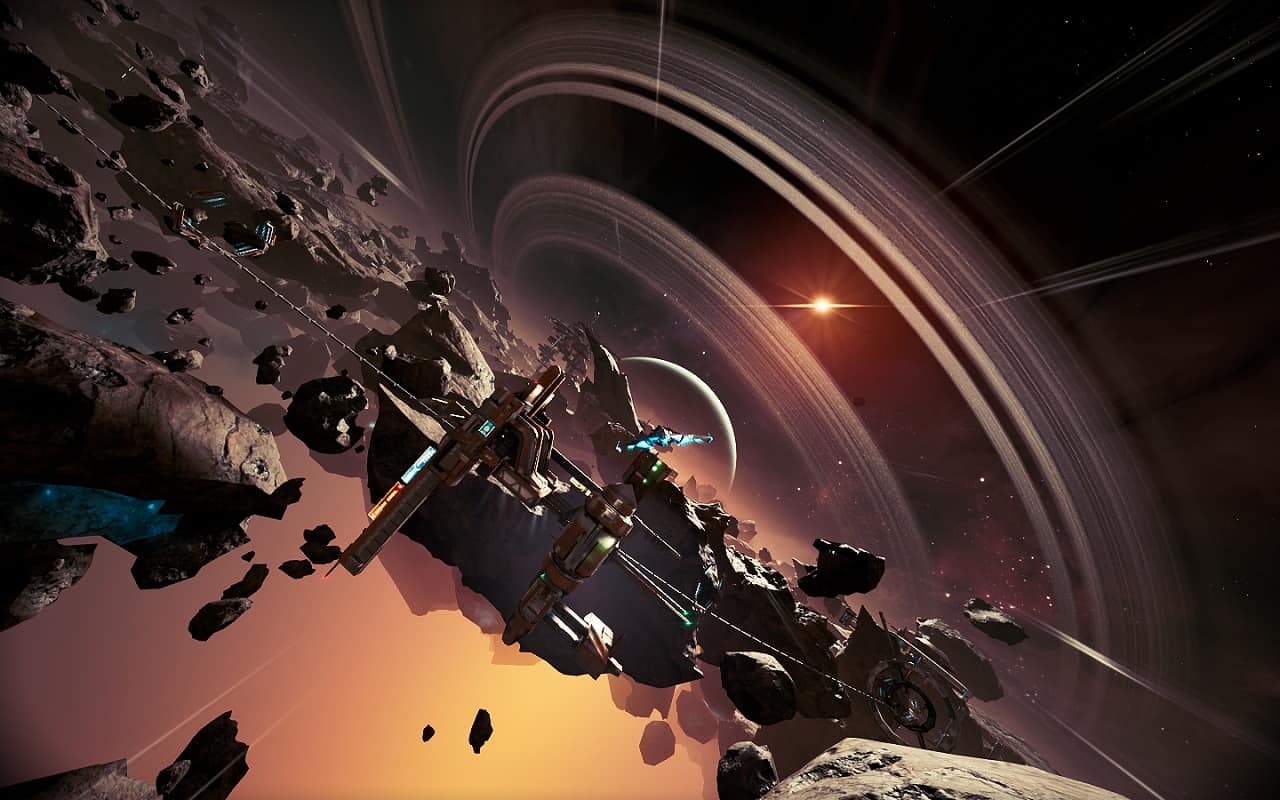
Despite some underdeveloped elements here and there, exploration in Chorus still manages to feel immersive, in no small part thanks to its visuals. The universe created by Fishlabs looks beautiful, to the point where I felt the need to stop every ten minutes to grab a screenshot. It helps that every system has a unique theme and interesting anomalies that beg to be explored.
The game’s environments get progressively darker as you advance through the story. With each new sector you unlock feeling more hostile and alien than the last. As you get closer and closer to the source of the corruption that’s slowly taking over the galaxy, you’ll be able to visit places so outlandish that they fall outside reality as we know it.
Chorus also does a great job of supplementing the visual experience with a fair amount of impressive cutscenes. The game’s cinematics are top-notch and serves not only as eye candy but also as an important narrative device.
Chorus is a very impressive-looking game considering its modest system requirements. You can get away with cranking all the settings up to max even on a fairly old machine. Even more importantly, the game is very well optimized.
I’m happy to say that I didn’t run into any sort of performance issues during my 20ish hours of playing the game. This is quite refreshing given the worrying number of studios comfortable with releasing games in abysmal states these days.
Final Thoughts
Chorus is a solid title that tries and, for the most part, succeeds at taking the space sim genre in an exciting new direction. The game doesn’t pull any punches when it comes to combat and offers an intriguing story that, while difficult to follow at times, does a great job at immersing you into this dark and sometimes bizarre universe.
Deep Silver brought us a lot of good games over the years as a publisher. With Metro Exodus, Saints Row IV, Wasteland 3, and the Risen series being just some of my personal favorites. As far as development is concerned, though, it’s been a while since the company’s in-house studios produced a big hit. Or even a new IP for that matter.
The decision to put Fishlabs, a studio mostly known for mobile games, in charge of developing a new IP could have easily backfired. But I’m happy to say that it didn’t. In fact, Chorus is one of the most interesting new IPs I’ve seen in a while. And one that has a lot of potential to be expanded in the future.
Chorus is now available on PC via Steam and the Epic Games store along with the PS4, PS5, Xbox One, Xbox Series X/S, Google Stadia, and Amazon Luna. The game will set you back $39.99 or your regional equivalent.
Use the player down below if you want to check out the video version of this review.

